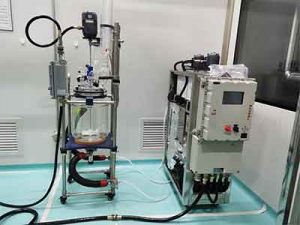industrial process water chillers
Industrial Process Water Chillers: Vital for Manufacturing Temperature Control
Industrial process water chillers are critical components in many manufacturing and industrial settings, where precise temperature control is necessary for the efficient operation of machinery and processes. These chillers work by removing heat from the process water, which is then circulated through the system to cool various applications, from plastic injection molding to laser cutting and more.

Key Features of Industrial Process Water Chillers
Cooling Capacity: The ability to remove heat and maintain a consistent temperature is paramount. Chillers are designed with specific cooling capacities to match the requirements of the process they serve.
Temperature Control Precision: High-precision temperature control allows for fine-tuning to meet the exact needs of sensitive processes, ensuring product quality and consistency.
Energy Efficiency: Modern chillers are designed with energy efficiency in mind, utilizing technologies like variable frequency drives (VFDs) to modulate energy consumption based on real-time cooling demands.
Reliability: Industrial processes often operate continuously, requiring chillers that can run reliably for extended periods with minimal downtime.
Performance Factors of Industrial Process Water Chillers
The performance of industrial process water chillers is influenced by several factors:
Cooling Capacity: Chillers must be selected with an appropriate cooling capacity to match the heat load of the process. Under-sizing or over-sizing can lead to inefficiencies or unnecessary costs.

Temperature Stability: The chiller’s ability to maintain a stable temperature is crucial for processes that are sensitive to temperature fluctuations.
Energy Efficiency: High-efficiency chillers use less energy, reducing operating costs and environmental impact. Features like VFDs and advanced compressor technologies contribute to energy savings.
Maintenance: Regular maintenance is essential for keeping chillers operating at peak performance. This includes cleaning condensers, checking refrigerant levels, and inspecting for leaks.
Maintenance and Operational Efficiency
Proper maintenance is key to ensuring the reliability and longevity of industrial process water chillers. Key maintenance tasks include:
Condenser Cleaning: Regular cleaning of condenser coils prevents the buildup of dirt and debris, which can reduce heat transfer efficiency.
Compressor Inspection: The compressor is a critical component that requires regular inspection for wear and proper lubrication.
Refrigerant Management: Monitoring and managing refrigerant levels are essential for maintaining system efficiency and ensuring compliance with environmental regulations.

System Monitoring: Continuous monitoring of the chiller’s performance can help identify issues before they lead to downtime.
Market Trends and Innovations
The market for industrial process water chillers is driven by the demand for energy-efficient and sustainable cooling solutions. Innovations in technology are continually being developed to improve the performance and efficiency of chillers, such as:
Advanced Compressor Technologies: Technologies like magnetic bearing compressors and two-stage compression are being used to improve efficiency and reliability.
Smart Controls: IoT-enabled smart controls allow for remote monitoring and optimization of chiller performance, leading to further energy savings.
Eco-Friendly Refrigerants: The industry is moving towards the use of more environmentally friendly refrigerants to reduce the environmental impact of chiller systems.
Conclusion
Industrial process water chillers are indispensable for maintaining optimal temperatures in a variety of industrial processes. The selection and operation of these chillers should consider factors like cooling capacity, temperature control, and energy efficiency. Regular maintenance is crucial for ensuring the chillers’ reliability and longevity, while ongoing technological advancements promise even greater efficiency and sustainability in the future. As the market evolves, the focus on energy efficiency and environmental responsibility will continue to shape the development of industrial process water chillers.
Related recommendations
industrial glycol chiller system
831Industrial Glycol Chiller Systems: Advanced Cooling for Diverse Applications Industrial glycol chiller systems are engineered to provide precise and reliable temperature control across a spectr...
View detailsFeatures of Industrial Chillers
1305Features of Industrial Chillers Industrial chiller is a cooling water device that can provide constant temperature, constant current and constant pressure. The working principle of the chille...
View detailswater cooled heat pump chiller
577Water-Cooled Heat Pump Chiller: Efficiency and Sustainability in HVAC Systems Introduction to Water-Cooled Heat Pump Chiller Systems Water-cooled heat pump chillers are sophisticated sys...
View detailschiller for injection molding machine
350IntroductionInjection molding is a widely used manufacturing process for producing plastic parts in various industries, from automotive and electronics to consumer goods. The quality and efficien...
View details
 LNEYA Chiller
LNEYA Chiller






HelloPlease log in